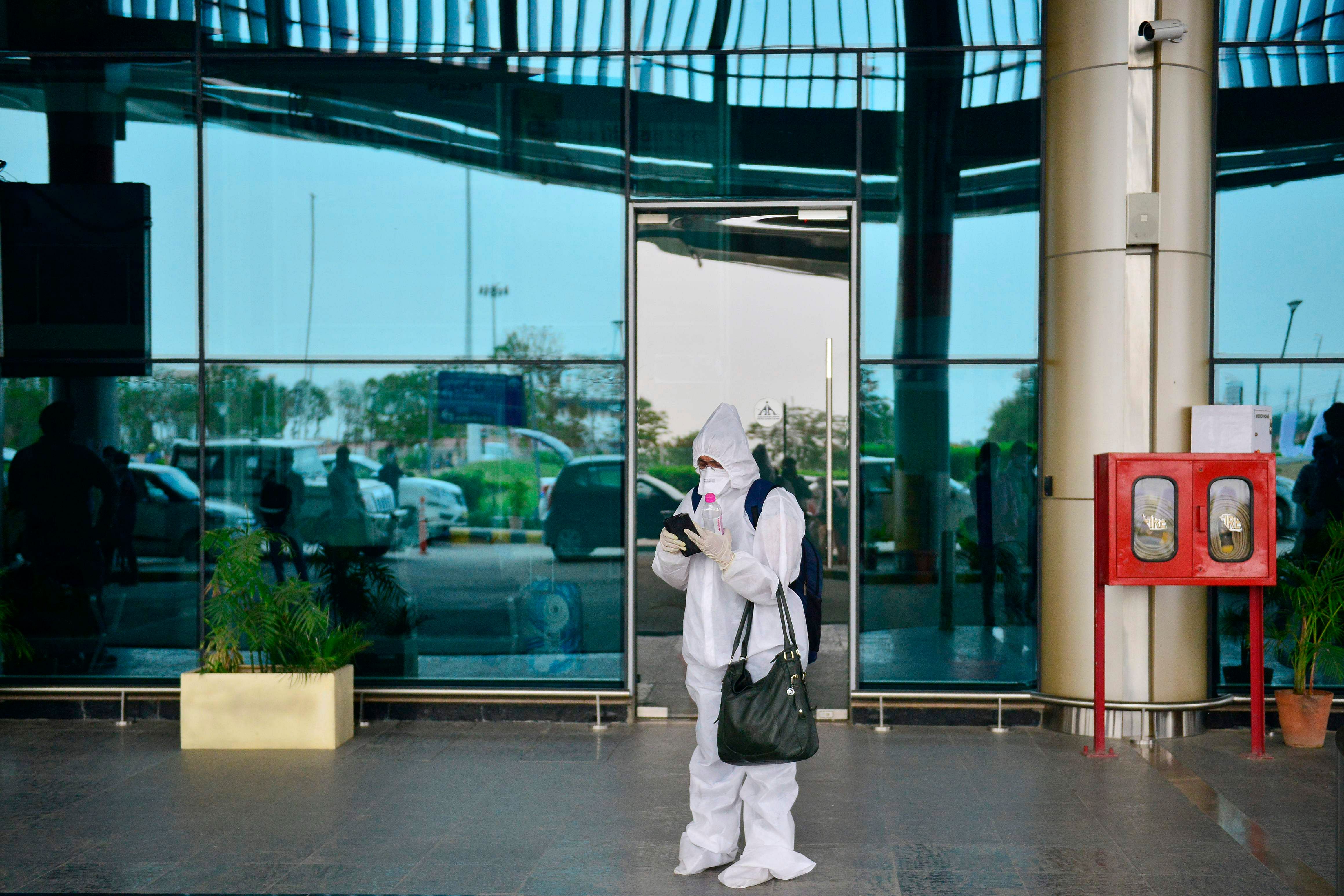
India has retaliated against the British government’s “discriminatory” travel rules and made it mandatory for the citizens of the United Kingdom arriving in the country from Monday onward to quarantine themselves for 10 days even if they have already been inoculated with Covid-19 jabs.
New Delhi decided to retaliate as the British government has not yet revised its new travel rules, which refused to recognise the Covid-19 vaccination programme in India.
The retaliatory measures imposed by Prime Minister Narendra Modi’s government will require all UK citizens, including the ones already vaccinated, to undergo pre-departure Covid-19 RT-PCR tests within 72 hours before travelling to India. They will also have to undergo Covid-19 RT-PCR tests immediately after arriving at any airport, as well as on the eighth day after arrival in India, according to sources in New Delhi.
The Ministry of Health and Family Welfare and the Ministry of Civil Aviation will make arrangements for implementation of the new measures for the UK citizens arriving in India from Monday. The British government’s new travel rules, which do not recognise the certificates issued by the Modi government to people inoculated with Covishield in India, will also come into force on Monday.
The diplomats and health officials of the two governments have been in touch over the past couple of weeks to address the British government’s concerns over some aspects of the certificates issued through the CoWIN app to people vaccinated with the Covishield Covid-19 vaccines. The Government of India made arrangements for the certificates to show full dates of birth of the vaccinated beneficiaries and thus addressed one of the concerns of London.
The British government, however, has not yet changed its new travel rules in order to recognise the certificates issued to the beneficiaries of the inoculation programme in India and to exempt them from mandatory quarantine requirement on arrival in the UK.
“The UK is continuing to work on expanding the policy to countries and territories across the globe in a phased approach,” said a spokesperson of the British High Commission in New Delhi. “We are continuing to engage with the Government of India on technical cooperation to expand UK recognition of vaccine certification to people vaccinated by a relevant public health body in India.”
The two governments are continuing discussion “on technical cooperation to expand UK recognition of vaccine certification to people vaccinated by a relevant public health body in India”, a spokesperson of the British High Commission in New Delhi said on Friday.
London’s envoy to New Delhi, Alex Ellis, had earlier pointed out that the visitors from the UK had to remain in home quarantine for seven days upon arrival in India even after testing negative for the SARS-CoV-2 infection.
External Affairs Minister S Jaishankar had raised the issue with his counterpart in the British government, Liz Truss, during a meeting in New York on September 21. Foreign Secretary Harsh Shringla had also told journalists in New Delhi on Tuesday that India could take reciprocal measures if the UK continued with its discriminatory policy.
The British government’s new travel rules had initially stipulated that only the people, who had been inoculated with the vaccines, such as the double dose ones developed by the AstraZeneca PLC, Pfizer Inc and the Moderna Inc or the single dose one developed by the Johnson and Johnson’s would be considered fully vaccinated and hence would be exempted from mandatory quarantine requirement on arrival in the UK.
The Serum Institute of India (SII) manufactures the AstraZeneca PLC’s vaccine in India as the company has authorised it to do so and market it as Covishield. But the British government’s new travel rules had initially not included it in the list of the approved vaccines for treating travellers as inoculated and hence entitled for exemption from quarantine requirement upon arrival in the UK.
After New Delhi had warned of “reciprocal measures”, the British government had on September 22 revised its travel rules to recognise the Covishield as one of the “approved” Covid-19 vaccines, but still refused to recognise the certificates issued to people, who had been inoculated with the jab in India.
This meant that the people administered with the Covishield in India would still have to undergo mandatory quarantine on arrival in the UK from Monday, unlike the ones administered with the same jab or any other “approved” SARS-CoV-2 jab in the US or anywhere in Europe or in 17 other countries.
New Delhi had called the British government’s policy “discriminatory” and asked it to make changes in it.
A citizen of India at present does not need to be vaccinated to travel to the UK.
But a traveller from India, regardless of her or his vaccination status, must take a pre-departure test and must take a Covid 19 test on or before the second day and on or after the eighth day after arrival in the UK, apart from self-isolating for 10 days. The travellers from India to UK can also choose to shorten their home quarantine to around five days under the ‘Test to Release’ service.
“The UK is open to travel and we’re already seeing a lot of people going from India to the UK, be it tourists, business people or students,” said the spokesperson of the British High Commission. “Over 62,500 student visas have been issued in the year ending June 2021, which is an increase of almost 30% as compared to the previous year. We want to make the process of travelling as easy as possible.”
London’s envoy to New Delhi, Alex Ellis, had earlier pointed out that the visitors from the UK had to remain in home quarantine for seven days upon arrival in India even after testing negative for the SARS-CoV-2 infection.
Check out the latest DH videos here:
